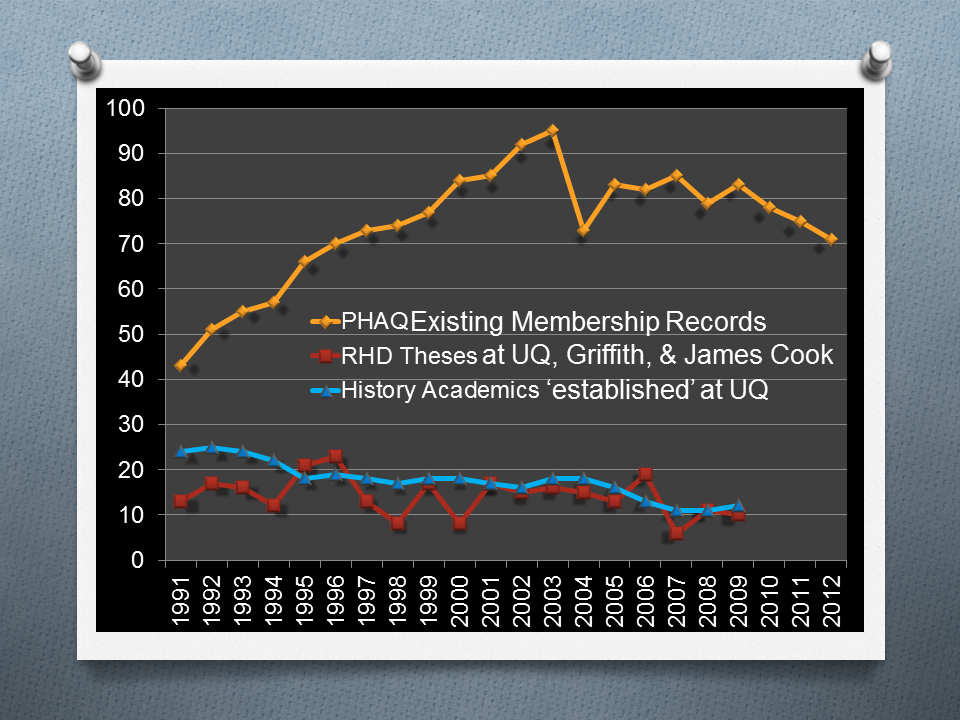Here we are reading the October 2012 edition of the Professional Historians Association (Queensland) e-Bulletin, three weeks after the Annual General Meeting. Time is moving on. It is hard to imagine the whirlwind of activity that led up to our reformation for this very start of the 2012-2013 business period. We needed to catch our breath, and digest the immense issues that were discussed at the AGM.
For those members who were unable to attend the 2012 AGM, it will be important to find out the finer details on the deliberations of planning, organisational roles, and the challenges in finding effective solutions or face dire consequences. Unfortunately, this edition can only provide a small overview of what occurred. I can report that the Management Committee was re-instated with the familiar hard-working team of previous years, with a new addition of Sophie Church. We welcome Sophie on-board and thank her for applying her expert experience & skills to the benefit of the Association. Reports from the President, Treasurer, and ACPHA Representative was tabled, along with a presentation on the first set of studies in the State of the History Profession in Queensland Project and a discussion of the draft 2012-2013 PHAQ Strategic Plan. A very positive sign for the Association at the AGM was the contribution of ideas that came from members – particularly our senior members with impressive depth of knowledge in the profession – during the discussion about the problems we have encountered in the past and the demands we now face.
More will be revealed in the coming months. A meeting of the Management Committee will happen on Tuesday 13 November to consider a plan to ensure the Association’s development and the survival of the profession in Queensland. That sounds like hyperbole, but consider this (see graph below; double-click to open image up):
- our numbers have been steadily dropping over the last four years,
- we have never regained the sort of critical mass in our profession that we had a decade ago,
- postgraduate numbers in the history have significantly fallen,
- and we are not attracting younger graduates into the Association, let alone making any formal contact with history postgraduates.
And this doesn’t account for the number of history contracts that are going to non-professional historians over the past few years.
If we don’t plan, and plan with considerable detail, we will be planning our failure. I am encouraged, though, by members who have, since the AGM, contributed their ideas and thoughts on these matters. Finally, however, the determining factor in our planning will be the willingness of members to be involved in the work of the Association. Project demands abound for each of us (and if it isn’t, call me; I can get you linked into a history project). This often makes members reluctant to get involved. Nevertheless, the lesson is that effort invested in the Association will mean more paid history work and further professional recognition for the individual member. Our strength as members is the Association. It is the source of professional standing and engagement in professional history. It is the profession.


